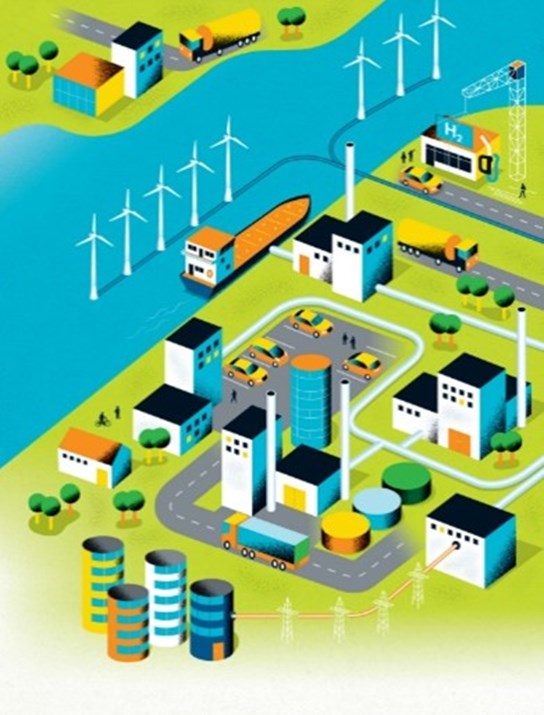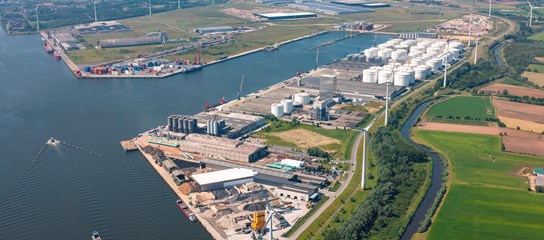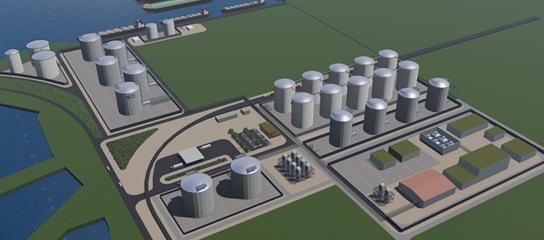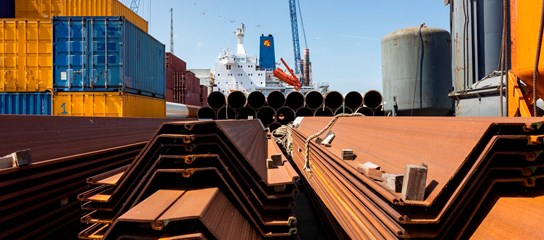North Sea Port and Flemish ports recognized as European Hydrogen Valley status
The three ports are complementary in their activities, and therefore have a unique starting position for the roll-out of the hydrogen economy. For example, they combine steel and chemical industrial clusters with energy hub functions and offshore renewable energy production. Due to their geographical location, they act as a gateway to a European network of inland waterways, railways, pipelines and road connections. Therefore the 'Flemish Hydrogen Ports Valley' has all the assets to take on a crucial role in the European hydrogen economy.
Green and low-carbon hydrogen
Today, several projects are already being developed and realised in the area for the production of green and low-carbon hydrogen and derived molecules. In addition to decarbonising the existing demand in the local chemical industry, this hydrogen will also be used in steel production, shipping and road transport, among other things. The first demonstrations of these new applications have already been realised.
In the near future, local production will be combined with large-scale international import and transit of low-carbon molecules, to supply clean hydrogen to customers both locally and in the hinterland, via the open access European Hydrogen Backbone.
Local and continental network
The European Union sees Hydrogen Valleys as a strong tool to show how the hydrogen economy works at the local level. These local hydrogen economies can then be connected to form a continental network in the future. Ports have a unique potential in this respect: up to 42% (22 Mt, or 730 TWh) of the total hydrogen demand in the EU in 2050 could be located in port areas.
The 'Hydrogen valley' certificate was issued by the Clean Hydrogen Partnership and Mission Innovation who maintain an online map with the main characteristics of the Hydrogen Valleys in Europe and the world - the hydrogen valley platform.
The Flemish Hydrogen Ports Valley is coordinated by knowledge and collaboration platform WaterstofNet, as coordinator of the Hydrogen Industry Cluster of which all ports involved are members.
Beeld: Roland Berger, Hydrogen Valleys, Insights into the emerging hydrogen economy (2021)




